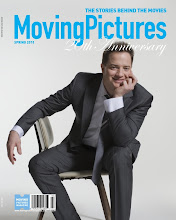Reviewed by Jeremy Carr
(March 2010)
Directed/Written by: Turk Pipkin
Starring: Steve Chu, Willie Nelson, Muhammad Yunus, Helene Gayle and Cameron Sinclair
There is little in the 2009 documentary “One Peace at a Time” that would come as a surprise to most world-weary and aware viewers, but even those parts that are familiar are nevertheless staggering. The film is a compendium of the problems of the world (a “messed up” one as the tag-line proclaims), and its proficiency and downfall derive from an attempt to seemingly cover and show them all.
This is the second globally conscious production by actor-writer-director Turk Pipkin, and he makes it known that, as with any film, there is a separation from reality. He aims to change this, however, by becoming part of his picture, which underscores his interest in not merely remaining a passive observer; instead, he is actively answering the call to action sounded by the film.
While shooting “Nobelity” (his previous feature), Pipkin was told by a Nobel Prize winner that things in this world might not be as bad as they seem, but that’s not the message conveyed in this film. Spanning the world — from Thailand to Bangladesh, from Norway to New York’s Central Park — and covering such areas of international distress as poverty, water shortages, politics and population control (there is a “condom king” who institutes a program of “Cops and Rubbers”), as well as the ever-volatile issues of global warming and health care, the film presents with the best possible intentions the problems and the solutions, showing many people who are truly trying to make a difference. Individuals interviewed run the gamut of professions and backgrounds, each person managing to add something relevant and insightful to the overarching conversation (Pipkin talks with President Obama’s eventual pick for Secretary of Energy Steven Chu one minute, and plays chess with Willie Nelson the next).
It’s clear that Pipkin understands and knows how to fully exploit the essential qualities of persuasive cinema. He utilizes to great effect the manipulations inherent in the topical documentary, expressing much through images of impoverished and endearing children (one child refers to Mickey Mouse as the “friendly rat”), of downtrodden adults (including a lady whom he designates the saddest woman he has ever seen), and the sheer spectacle of natural and unnatural forces colliding (an astonishingly voluminous cloud of factory waste extending seemingly for miles in the sky). Additionally, in a way that at once works against and with the ambition of the film, Pipkin continually captures the beauty of these distressed surroundings, making it almost a travelogue of sorts (he dubs it a “road movie”). This is all combined with statistical data that hammers home the devastating points made by the film and those who speak in it (for instance, we are told that a child dies of hunger in the time it takes a person to read five words).
Two segments stand out in their depiction of typically less-discussed concerns, provoking equal parts shock, disgust, sadness and anger. One concerns schooling, which is taken for granted and disdained by many youths, particularly in America, but is greatly sought after and appreciated by the children presented in these third-world nations. To learn — even the possibility of learning — is of nearly incomprehensible importance. The other deals with weapons of warfare, shown to be appalling in their disastrous and unjust effects, wiping out scores of innocent individuals in their indiscriminate carnage.
Queen Rania of Jordan, speaking at a conference, notes potential for peace and prosperity. These goals, as the title of the film implies, are really the definitive issues at hand; this is what it all comes down to — this and, as one interviewee suggests, energy.
Created with apparent compassion, hopefulness and honesty, Pipkin’s documentary brings everything home (literally), with scenes of himself and his Austin, Texas, family doing what they can to alleviate some of the issues presented. The film’s only real fault is its expansiveness. Covering so many problems in so many places and involving so many people, the picture is a smorgasbord of subjects, but its swift 83-minute running time hardly allows the viewer to absorb and comprehend one concern before being moved on to the next. Possibly more suited to an episodic television special, “One Peace at a Time” still conveys, piece by piece — starting with the essentials — a desire to raise awareness of what is out there messing up our world and “how we could fix it.”
Never getting a wide theatrical run, the film’s best hope at spreading its message will come with its April 13 DVD release.
Photo courtesy monterey media inc., © MMIX The Nobelity Project
